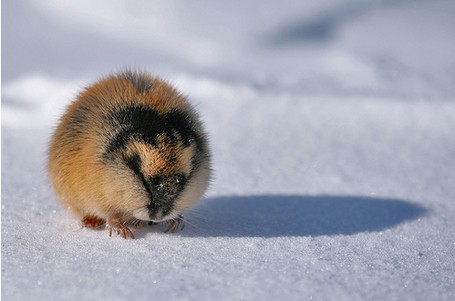Armadillo
Armadillos are very small mammals, which have a hard outer shell that protects them like armor plating.
There are several species of Armadillo and some of these can be distinguished by the bands on their armor.
They will grow to be about thirty inches including their tails, while the giant species of armadillo will grow to be about 3 feet in length. The pink Fairy, another species of armadillo grows to just 5 inches long.

Armadillo
All of the armadillo species are native to the Americans.
The nine banded armadillo lives in the United States in the southern states, particularly they inhabit Texas.
Armadillos were born to DIG. They have sharp claws, strong legs and use both to dig for food and to make dens.
The Nine-banded Armadillo likes to build his tunnel and burrows in moist dirt near streams and creeks. The diet of this bony plated wonder is largely insects and grubs.
Armadillos have extremely poor vision but are not completely blind.
Their armor is made by plates of bone, which covers them in a sort of overlapping way rather like shingles on a rood.
They are called Scutes, and are the major line of defense of most armadillos, though most will run from a predator, or dig their way to safety.
The Nine-banded Armadillo jumps straight upward when he is frightened or upset consequently very often is reported to have collided with the under part or fender of a car when vehicles pass them on the road.

Armadillo
Armadillos have really short legs but can run very quickly. They also can stay underwater for about 5 minutes.
Imagine being able to hold your breath for that long.
When in the water armadillos will sink to the bottom because of their armor. Therefore when they go into water, they need to inflate themselves by taking air into their stomachs.
This will completely inflate the belly and the armadillo will nearly double in size.
Because of the weight of its armor, an armadillo will sink in water unless it inflates its stomach with air which will make it nearly double its normal size.
Find out more about the Armadillo over at Wikipedia »


did you know that armadillos can swim. you should watch billy the extermaneter. are armadillos are cute or what. i love armadillos.
Brooke, I wish all the amadillos in my yard would come to your house. You must not have a lawn that you try so hard to keep watered and groomed only to see total destruction of your grass.